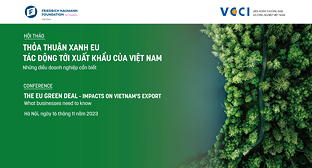Rubber users urge govt to scrap anti-dumping duty
22/08/2008 12:00
MUMBAI, Aug 13 (Reuters) - Indian tyre makers and other rubber users have asked the government to scrap the anti-dumping duty on synthetic rubber and curb exports of natural rubber to tame high prices that are crippling the industry, officials said.
Prices of all the raw materials like natural rubber, carbon black, rubber chemicals have gone up. The industry is in bad shape and under tremendous pressure, said M.F Vohra, president of the All India Rubber Industries Association (AIRIA), an apex body of both tyremakers and other users of the commodity.
Natural rubber has risen about 20 percent in the last three months, hitting an all-time high of 141.50 rupees per kg on Aug. 1, according to the Rubber Board.
An increase in rubber consumption, as well as an increase in crude oil prices which is used to make synthetic rubber, have pushed up natural rubber prices in recent months, said Sajen Peter, chairman of the state-run Rubber Board.
The AIRIA has said non-availability of synthetic rubber and a spurt in global prices have reduced the relevance of the anti-dumping duty.
India, which requires 20,000 tonnes of ethylene propylene diene monomer (EPDM) rubber annually, imposes anti-dumping duties of $300 per tonne. EPDM is mainly consumed by auto-part makers.
"In case of EPDM rubber there is no production in India and still the government is imposing anti-dumping duty," Vohra said.
Imposition of anti-dumping duty only increases the cost of the finished products, leading to further escalation of prices, he added.
The tyre industry, which consumes more than 60 percent of the raw material is reeling under the high input costs, said Rajiv Budhraja, director general of Automotive Tyre Manufacturers' Association.
Most of the tyre companies have increased the prices twice this year, but a large percentage of the cost increase is still uncovered, he added.
"There is a serious issue of non-availability of RSS-4 grade in the market. So we are facing pressure on both sides -- availability and high prices, Budhraja said.
Total natural rubber production is unable to meet the growing consumption. So any major outflow would adversly affect the domestic market, he said.
In 2007/08, the country produced about 825,000 tonnes, while consumption was about 860,000 tonnes.
"There need to be some restrictions on exports to increase domestic availability," Budhraja said.
Prices of all the raw materials like natural rubber, carbon black, rubber chemicals have gone up. The industry is in bad shape and under tremendous pressure, said M.F Vohra, president of the All India Rubber Industries Association (AIRIA), an apex body of both tyremakers and other users of the commodity.
Natural rubber has risen about 20 percent in the last three months, hitting an all-time high of 141.50 rupees per kg on Aug. 1, according to the Rubber Board.
An increase in rubber consumption, as well as an increase in crude oil prices which is used to make synthetic rubber, have pushed up natural rubber prices in recent months, said Sajen Peter, chairman of the state-run Rubber Board.
The AIRIA has said non-availability of synthetic rubber and a spurt in global prices have reduced the relevance of the anti-dumping duty.
India, which requires 20,000 tonnes of ethylene propylene diene monomer (EPDM) rubber annually, imposes anti-dumping duties of $300 per tonne. EPDM is mainly consumed by auto-part makers.
"In case of EPDM rubber there is no production in India and still the government is imposing anti-dumping duty," Vohra said.
Imposition of anti-dumping duty only increases the cost of the finished products, leading to further escalation of prices, he added.
The tyre industry, which consumes more than 60 percent of the raw material is reeling under the high input costs, said Rajiv Budhraja, director general of Automotive Tyre Manufacturers' Association.
Most of the tyre companies have increased the prices twice this year, but a large percentage of the cost increase is still uncovered, he added.
"There is a serious issue of non-availability of RSS-4 grade in the market. So we are facing pressure on both sides -- availability and high prices, Budhraja said.
Total natural rubber production is unable to meet the growing consumption. So any major outflow would adversly affect the domestic market, he said.
In 2007/08, the country produced about 825,000 tonnes, while consumption was about 860,000 tonnes.
"There need to be some restrictions on exports to increase domestic availability," Budhraja said.
(Editing by Ramya Venugopal)
By Debiprasad Nayak
Wed Aug 13, 2008 2:49pm IST
Source: in.reuters.com
By Debiprasad Nayak
Wed Aug 13, 2008 2:49pm IST
Source: in.reuters.com
Các tin khác
- Textile and garment exports recovered positively (19/04/2024)
- Foreign steel imported en masse, manufacturers call for protection (19/04/2024)
- US targets Chinese steel with 'overcapacity' fallacy amid escalating trade tensions; move casts great uncertainty on stabilizing bilateral ties (19/04/2024)
- Thailand is considering implementing protective tariffs on imports from China (19/04/2024)
- Fruit and vegetable exports to RoK and Thailand surge (19/04/2024)
 Home
Home
 About Us
About Us




















